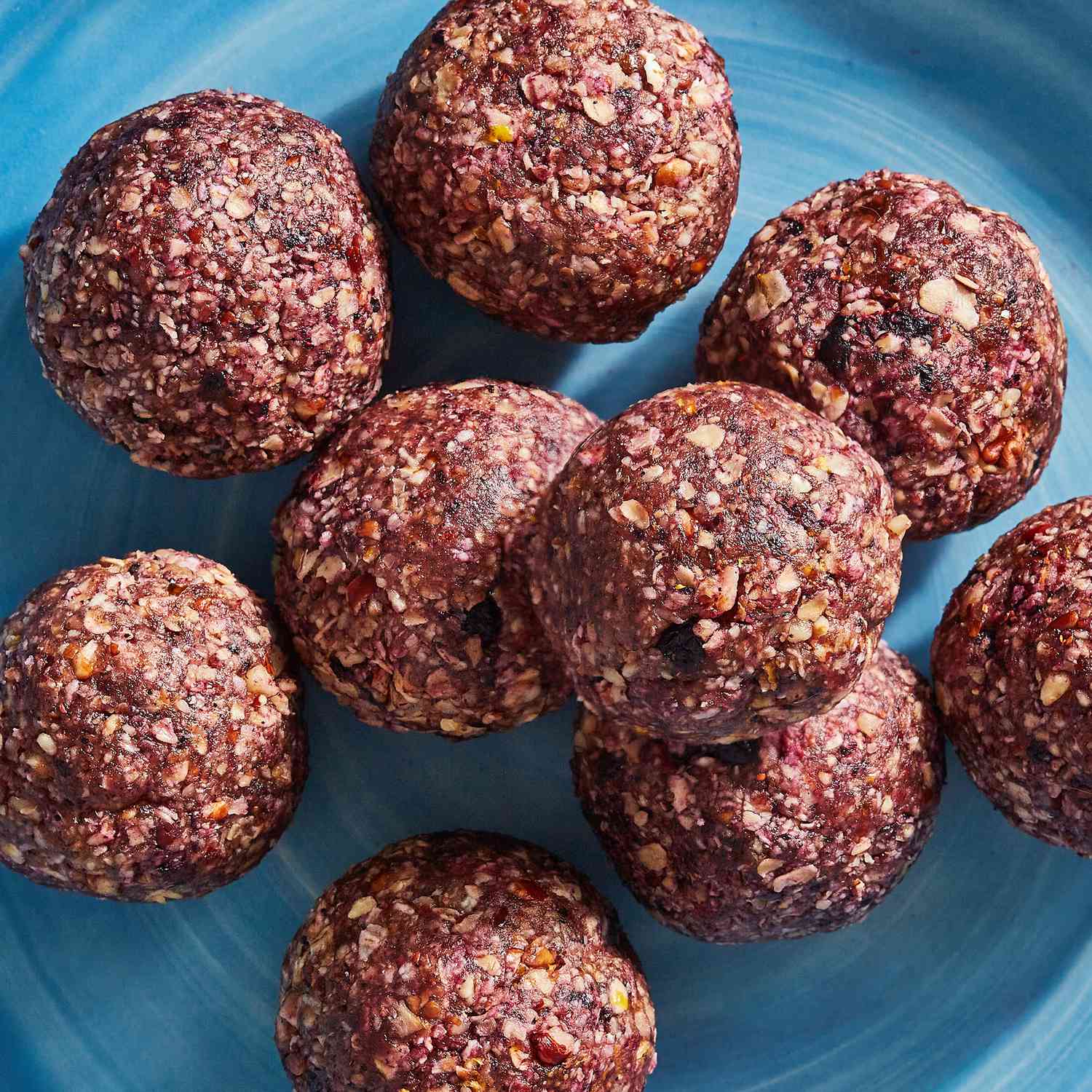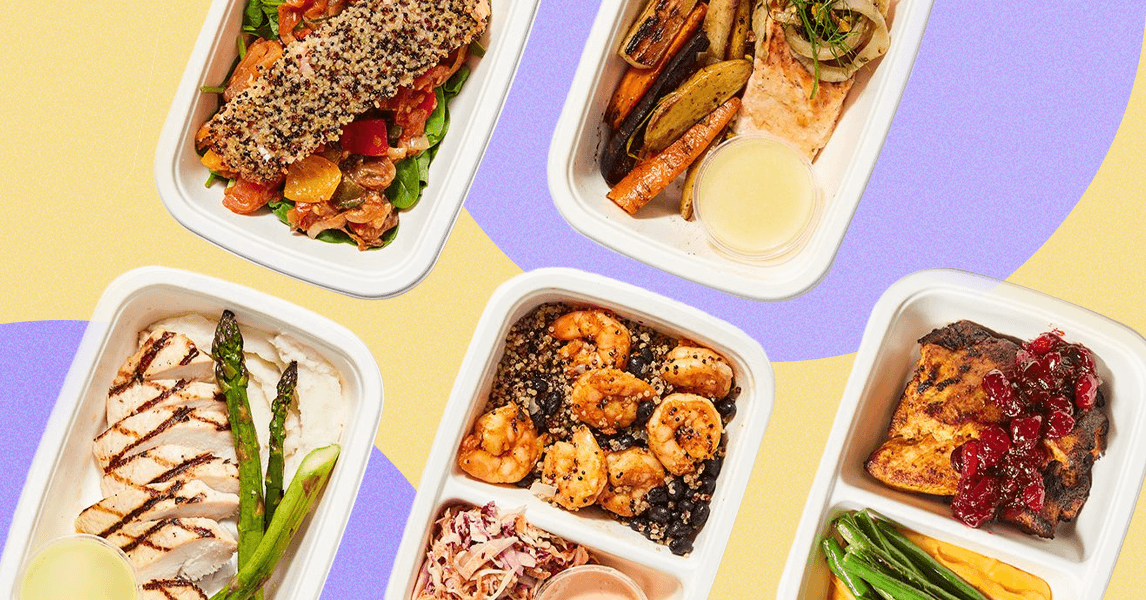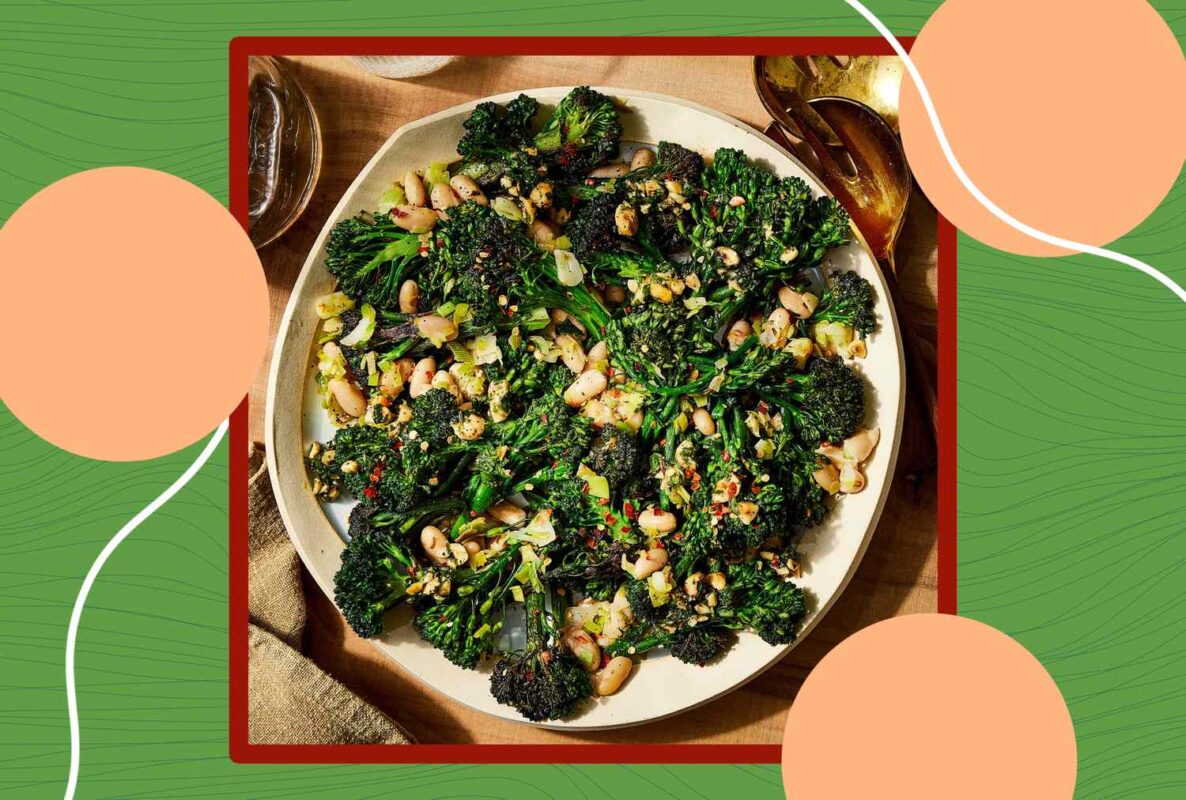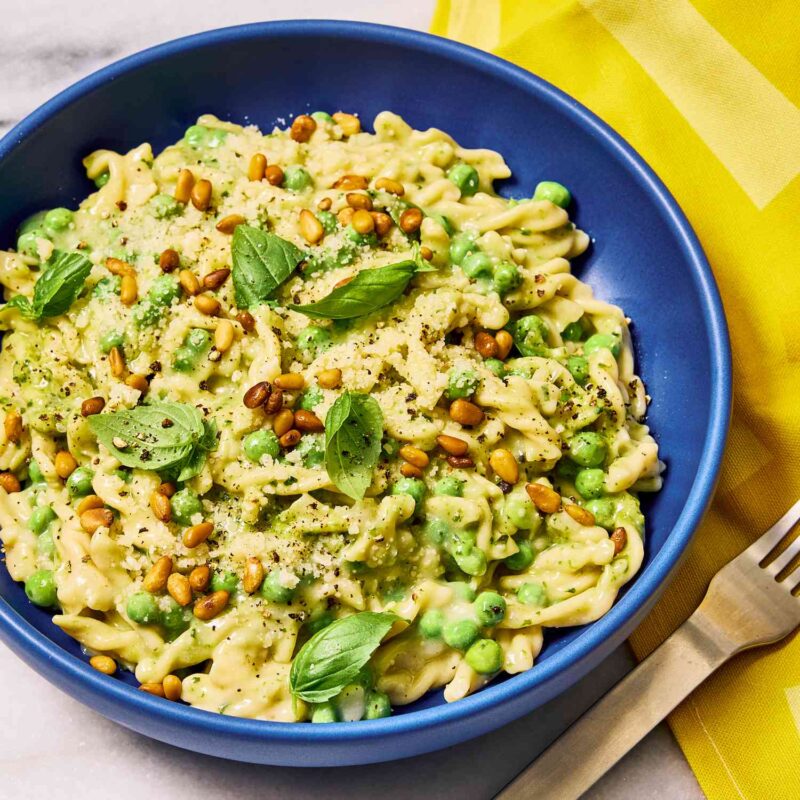Blog
7-Day Mediterranean Diet Meal Plan for More Energy

| Meal Plan at a Glance | ||
|---|---|---|
| BREAKFAST/ A.M. SNACK | LUNCH/ P.M. SNACK | DINNER |
| Egg bites & smoothie/ Yogurt & fruit | Tuna salad/ Energy balls | Stew & salad |
| English muffin & yogurt/ Pistachios | Chicken soup/ Energy balls | Salmon tacos |
| Egg bites & smoothie/ Apple & nut butter | Chicken soup/ Pear | Steak salad |
| English muffin & yogurt/ Apple | Chicken soup/ Energy balls | Chicken couscous bowl |
| Egg bites & smoothie/ Yogurt & fruit | Chickpea salad/ Energy balls | Cauliflower salad |
| English muffin & yogurt/ Egg & fruit | Chickpea salad/ Energy balls | Shrimp kebabs |
| Egg bites & smoothie/ Pear | Tuna salad/ Apple & nut butter | Chicken & broccolini & beans |
Day 1
Breakfast (322 calories)
Morning Snack (135 calories)
- 1 (5-oz.) container low-fat plain strained (Greek-style) yogurt
- ½ cup raspberries
Lunch (351 calories)
Afternoon Snack (190 calories)
Dinner (490 calories)
Daily Totals: 1,488 calories, 71g fat, 74g protein, 150g carbohydrate, 30g fiber, 1,620mg sodium
To make it 2,000 calories: Add 3 Tbsp. chopped walnuts to A.M. snack, 2 Tbsp. natural peanut butter to lunch and half an avocado, sliced, to the salad at dinner.
Day 2
Breakfast (365 calories)
Morning Snack (176 calories)
- ¼ cup shelled unsalted dry-roasted pistachios
Lunch (363 calories)
Afternoon Snack (125 calories)
Dinner (460 calories)
Daily Totals: 1,489 calories, 61g fat, 95g protein, 158g carbohydrate, 31g fiber, 1,471mg sodium
To make it 2,000 calories: Add 2 Tbsp. chopped walnuts to breakfast, 1 medium apple to A.M. snack, 1 medium bell pepper with ¼ cup hummus to lunch and 1 serving Pineapple & Avocado Salad to dinner.
Day 3
Breakfast (322 calories)
Morning Snack (305 calories)
- 1 medium apple
- 2 Tbsp. natural peanut butter
Lunch (359 calories)
Afternoon Snack (131 calories)
Dinner (405 calories)
Daily Totals: 1,522 calories, 70g fat, 83g protein, 144g carbohydrate, 29g fiber, 1,852mg sodium
To make it 2,000 calories: Increase to 2½ Tbsp. natural peanut butter at A.M. snack, add ¼ cup unsalted dry-roasted almonds to P.M. snack and add 1 serving Blueberry-Lemon Energy Balls as an evening snack.
Day 4
Breakfast (365 calories)
Morning Snack (95 calories)
Lunch (363 calories)
Afternoon Snack (190 calories)
Dinner (473 calories)
Daily Totals: 1,486 calories, 49g fat, 90g protein, 186g carbohydrate, 30g fiber, 1,667mg sodium
To make it 2,000 calories: Add 2 Tbsp. chopped walnuts to breakfast, 2 Tbsp. natural peanut butter to A.M. snack and 1 serving Traditional Greek Salad to dinner.
Day 5
Breakfast (322 calories)
Morning Snack (135 calories)
- 1 (5-oz.) container low-fat plain strained (Greek-style) yogurt
- ½ cup raspberries
Lunch (401 calories)
Afternoon Snack (125 calories)
Dinner (502 calories)
Daily Totals: 1,486 calories, 80g fat, 65g protein, 135g carbohydrate, 31g fiber, 1,680mg sodium
To make it 2,000 calories: Add 2 Tbsp. chopped walnuts to A.M. snack, 1 medium peach to lunch and 1 medium banana with 2 Tbsp. natural peanut butter as an evening snack.
Day 6
Breakfast (365 calories)
Morning Snack (120 calories)
- 1 large hard-boiled egg
- ½ cup blueberries
Lunch (401 calories)
Afternoon Snack (190 calories)
Dinner (442 calories)
Daily Totals: 1,518 calories, 75g fat, 75g protein, 143g carbohydrate, 28g fiber, 1,179mg sodium
To make it 2,000 calories: Add ¼ cup chopped walnuts at breakfast, 1 medium peach to lunch and 1 serving Mango & Avocado Salad to dinner.
Day 7
Breakfast (322 calories)
Morning Snack (131 calories)
Lunch (345 calories)
- 1 serving Tuna Salad with Egg over 1 cup mixed greens
- 1 medium bell pepper, sliced
- 2 Tbsp. hummus
Afternoon Snack (200 calories)
- 1 medium apple
- 1 Tbsp. natural peanut butter
Dinner (520 calories)
Daily Totals: 1,519 calories, 67g fat, 99g protein, 135g carbohydrate, 29g fiber, 1,953mg sodium
To make it 2,000 calories: Add ¼ cup unsalted dry-roasted almonds to A.M. snack, increase to 2 Tbsp. natural peanut butter to P.M. snack and add 1 serving Blueberry-Lemon Energy Balls as an evening snack
Frequently Asked Questions
Is it OK to mix and match meals if there’s one I don’t like?Yes! This meal plan is meant to serve as inspiration. It doesn’t need to be followed exactly to reap the benefits. When choosing recipes, we made sure to check the calories, fiber, protein and sodium to align with the parameters of this plan and be within our sodium limits. If you’re making a recipe swap, it may be helpful to choose a recipe with similar calories, fiber, protein and sodium levels. For more inspiration, check out these delicious Healthy Mediterranean Recipes.
Can I eat the same breakfast or lunch every day?Definitely, it’s fine to eat the same breakfast or lunch every day. The breakfasts range from 322 to 365 calories while the lunches span 345 to 401 calories. These ranges are fairly close, though if you’re closely monitoring your calories or other nutrients, like protein, you may want to adjust a snack or two.
Why is there not a modification for 1,200 calories?We no longer provide modifications for 1,200-calorie days in our meal plans. The 2020-2025 Dietary Guidelines for Americans suggests that limiting calories to 1,200 per day is too low for most people to meet their nutritional needs, plus it’s unsustainable for long-term health and well-being.
Tips for Using the Mediterranean Diet to Improve Energy Levels
Rich in nutrients, the Mediterranean diet is a healthy way of eating that includes plenty of fresh produce, whole grains, legumes, healthy fats and a wide variety of lean proteins. Long regarded as one of the healthiest diets for its numerous health benefits, the Mediterranean diet is more of a lifestyle than a strict diet. Of course, it emphasizes plenty of nutrient-rich produce, but it also promotes cooking more meals at home, sharing meals with others, increasing mindfulness and slowing down to sit and enjoy meals rather than eating on the go. Because eating too little can zap energy levels, be sure to listen to your body and make sure that you’re eating enough. You can keep your energy levels high by doing the following:
- Staying hydrated
- Eat regular meals and snacks
- Get enough sleep
- Eat balanced meals with carbs, healthy fats and protein
- Exercise daily
How We Create Meal Plans
Registered dietitians thoughtfully create EatingWell’s meal plans to be easy-to-follow and delicious. Each meal plan meets specific parameters depending on the health condition and/or lifestyle goal it is targeting and is analyzed for accuracy using the nutrition database, ESHA Food Processor. As nutritional needs differ from person to person, we encourage you to use these plans as inspiration and adjust as you see fit.
Dig Deeper
7 Best Carbs You Should Eat for More Energy, Recommended by a Dietitian
3 Amazing Things That Happen to Your Brain When You Follow the Mediterranean Diet












